The Urban Unit, equipped with a multi-disciplinary team of professionals, has been a key player in urban sector development and management, recognizing it as essential for national progress in Pakistan. The Urban Unit has taken lead in developing legal and regulatory frameworks as well as institutional development in urban and regional planning, an area with significant potential for improvement and growth. Over the years, Urban Unit has gained expertise in comprehensive and strategic master planning, peri-urban structure planning, urban design and beautification, façade uplifting and restoration, tourism planning, and the formulation of rules, regulations, and codes for the housing and urban sectors.
Its capacity-building initiatives include imparting specialized training and urban development courses at prestigious institutions such as the Civil Services Academy, the Cantonment Institute of Management and Land Administration (CIMLA), and several other platforms. The Urban Unit has played a pivotal role in reshaping urban culture by assisting governments in making urban areas more functional, attractive, and sustainable. Its approach to planning and design is seamlessly interwoven with in-depth analysis and a thorough understanding of the unique characteristics of targeted cities.
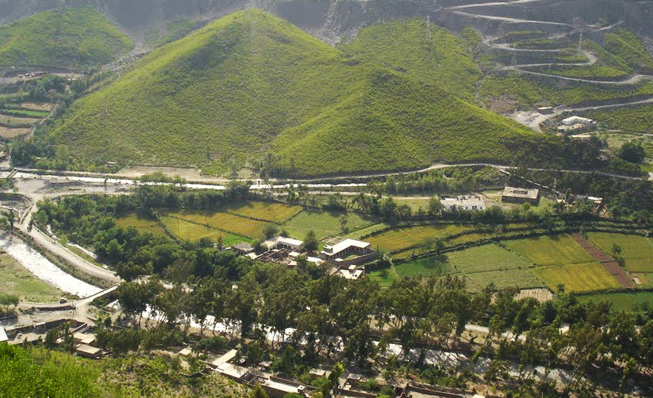
The project aims to promote efficient land management and mitigate conflicts between competing land uses in the Malakand Division's 08 districts through evidence-based planning. It will allocate land for sustainable development, guide multi-sector programs, and harmonize private and public sector activities. Objectives include documenting land resources, addressing land-use conflicts, preserving significant areas, and ensuring ecological and food security for long-term development. Inception Visits, Reconnaissance Survey, Inception Reports and Vision Development Exercises of all districts of Malakand Division were conducted by the Urban Unit team.
Client: Provincial Land Use Plan, Urban Policy and Planning Unit, Planning and Development Department, Government of KP
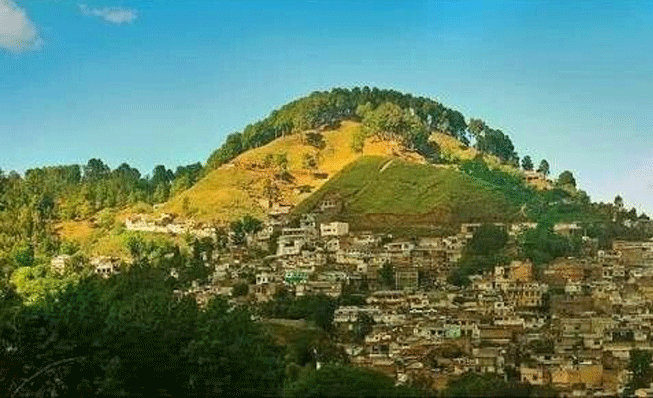
The project aims to implement efficient, data-driven land management in 07 districts of Hazara Division to mitigate land-use conflicts and promote sustainable development over 20 years. Objectives include evidence-based planning, land documentation, and proper allocation for human needs while guiding multi-sector development. It seeks to harmonize private and public activities, resolve land-use conflicts, and preserve ecological, historical, and cultural areas to ensure sustainability and food security.
Inception Visits, Reconnaissance Survey, Inception Reports and Vision Development Exercises of all districts of Hazara Division were conducted by the Urban Unit team.
Client: Provincial Land Use Plan, Urban Policy and Planning Unit, Planning and Development Department, Government of KP
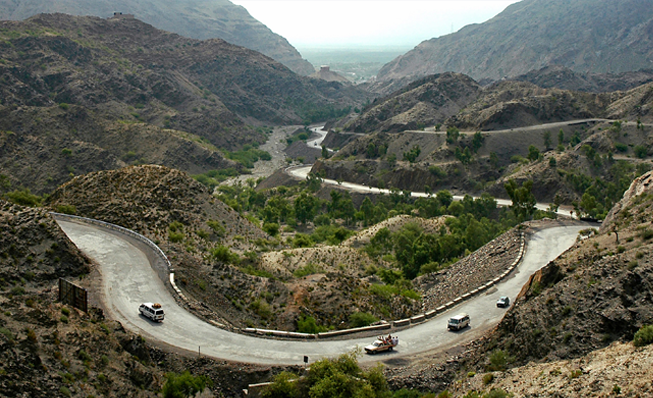
The project aims to implement efficient land management in 07 districts of Kohat, Bannu, and D.I. Khan Divisions to address land-use conflicts and promote sustainable development over 20 years. Key objectives include evidence-based land use planning, land documentation, and allocation for future needs, while guiding integrated multi-sector development. It seeks to harmonize private and public sector activities, resolve land-use conflicts, and preserve ecological, historical, and cultural areas to ensure sustainability and food security.
Inception Visits, Reconnaissance Survey, Inception Reports and Vision, Development Exercises of all districts of Kohat, Bannu and D.I. Khan Divisions was conducted by the Urban Unit team.
Client: Provincial Land Use Plan, Urban Policy and Planning Unit, Planning and Development Department, Government of KP
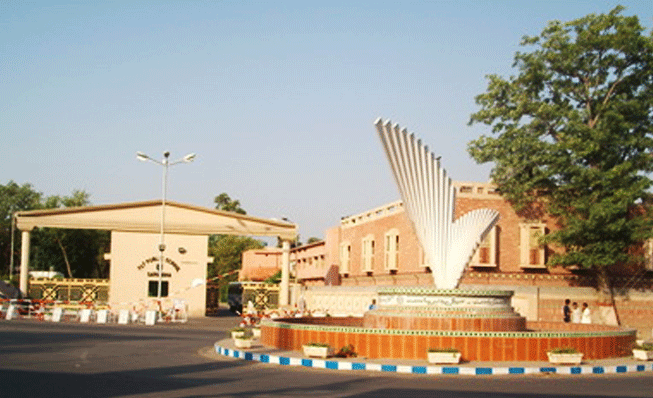
The project aimed to develop a Regional Development Plan (RDP) for Sargodha Division to enhance competitiveness, improve quality of life, and boost economic opportunities. It focused on identifying projects that drive economic growth, preserve assets, and leverage regional advantages. Key sectors include economic growth (agriculture, livestock, industries), human capital (education, health), connectivity (transport, roads), urban development (water supply, sewerage, waste management), and sustainability (tourism, environment).
Regional Development Plans of all sectors that culminated into projects, programs and schemes were developed by the Urban Unit.
Client: Planning and Development Department, Government of Punjab
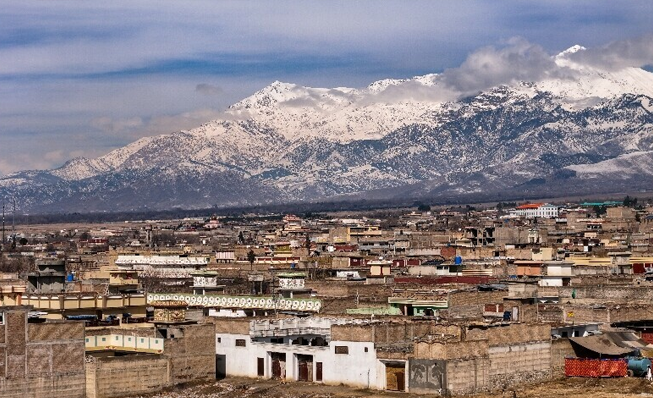
The project aims to develop a strategic "Master Plan" to shape the physical future of urban centers in the Agency Headquarters of Merged Districts. It includes delineating administrative boundaries, conducting field surveys, and analyzing urban structures and sectoral profiles. The plan focuses on systematic infrastructure growth, developing settlement hierarchies, reducing migration to major cities, and guiding rural area development while addressing emerging development corridors.
Inception Report and Situational Analysis of all the districts of Package 02 was developed by the Urban Unit.
Client: Urban Policy and Planning Unit, Planning and Development Department, Government of KP
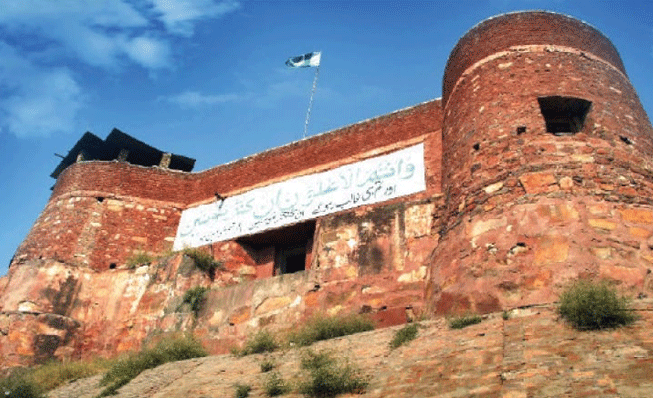
This project is conceived and designed to develop a long-term holistic planning vision through a collaborative process which is essentially expected to take the form of a strategic planning framework i.e. “Master Plan” to shape Urban Centers physical future form. The scope of the project includes a comprehensive vision will be developed for the Agency HeadQuarters of Merged Districts, administrative boundaries will be delineated at inception phase which shall be refined in later stages after situational analysis, detailed field surveys and studies will be conducted and situational analysis will be performed for the existing conditions of urban structure and all sectoral profiles will be prepared to suggest further proposals, planned hierarchy of settlements and an integrated and systematic growth of trunk infrastructure and services in the province, it will provide guidelines for the emerging developments corridors and suggest parameters for reducing migration to big urban centers, it will provide guidelines for the proper development of surrounding rural areas.
Therefore, an independent Master Plan will be prepared for each headquarter city. The plan will cover a 20-year period to cater for the development needs of the city.
Client: Urban Policy and Planning Unit, Planning and Development Department, Government of KP
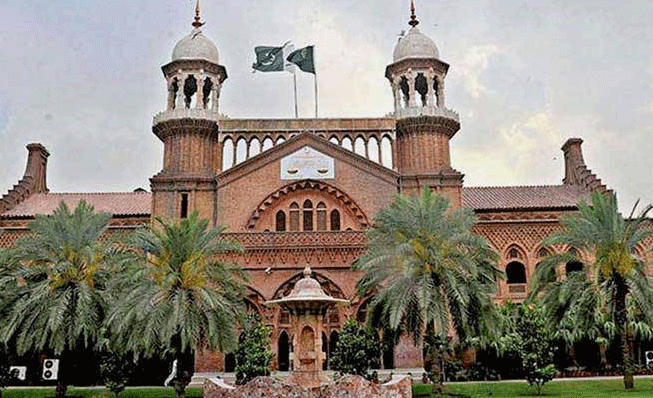
The future developments in the MC Gujrat need to be brought under control essentially through modern urban and industrial planning by deliberately embedding security, safety and national awareness standards. It is essential to carry out comprehensive and integrated assessment to enforce byelaws and zoning of residential/commercial/industrial areas. Land use planning is required to select and put into practice those land uses that will best meet the needs of the present generation while safeguarding resources and ensuring safety for the future.
An extensive analysis of Municipal Committee of Gujarat is required to prepare a detailed study of Urban Development Plan that includes the following strategic plans Urban/Town Planning, Land Use Planning & Zoning, Economic Development, Solid and Industrial Waste Management & Public Space Management, Transportation, Traffic Management & Connectivity, Water Supply, Sewerage & Drainage and Environment Management.
Client: Pak Arab Oil Refinery (PARCO)
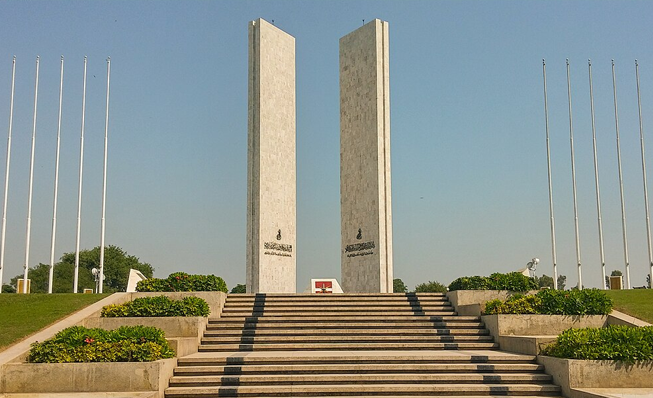
To identify potential projects & programs that can contribute to economic growth, employment opportunities and exploit the competitive advantages of the Gujranwala Region
To Identify the macro level development vision and target for the region through identification of agricultural and industrial development plans for the region. Identify focus areas and nodes (locations) for future interventions that result in growth in production, leading to job creation and exports
The Regional Development Plan of Gujranwala included Development Plan for Agriculture, Industrial, Water Supply and Sewerage, Solid Waste Management, Regional Connectivity Development Plan, Environmental Management Plan and Socio-economic Development Plan.
A Comprehensive Regional Perspective Plan (CRPP) for Gujranwala division, along with Regional Economic Growth Strategy (REGS) for transforming the region into a Globally competitive investment destination that create jobs and grow exports is prepared.
Client: Planning and Development Department, Government of Punjab
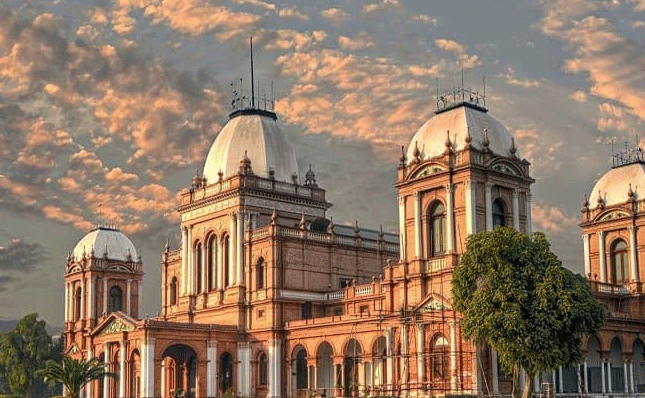
The Bahawalpur Regional Development Plan aims to identify projects and programs that drive economic growth, create employment opportunities, and leverage the region's competitive advantages. Using spatial data and local stakeholder input, it provides a strategic vision for rapid implementation. Key sectors include economic and agricultural development, industrial growth, human capital (health, education), physical capital (urban planning, transport, water supply), social and cultural capital (tourism, environment), and socio-economic development.
Client: Planning and Development Department, Government of Punjab
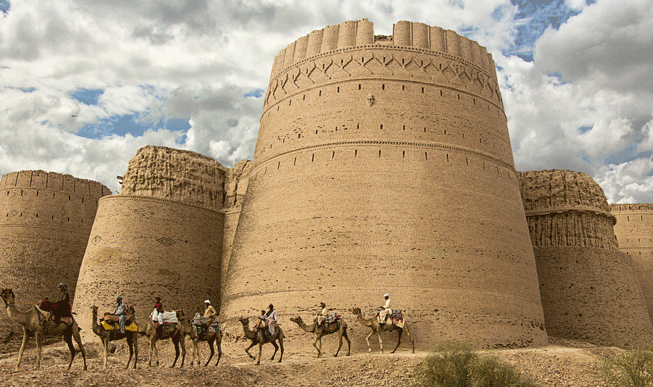
The Integrated Master Plan for Cholistan aims to enhance access to quality education, promote tourism, and upgrade water and sanitation services through need-based, inclusive planning. It seeks to address low investment levels and uplift marginalized communities by providing a comprehensive framework for sustainable development. The plan will include maps, data on existing infrastructure and governance, and future recommendations for equitable and sustainable progress.
The project objectives primarily entail preparation of an Integrated Master Plan for 50 years’ time period with a Short Term (2025), Medium Term (2035) and Long Term (2050) development plan for implementation covering the following sectors includes Water, Education, Health, Tourism, Archaeology & Heritage, Livestock and Agriculture, Land Use and Housing, Transportation & Roads, Environment, Institutional Restructuring and Capacity Building.
Client: Cholistan Development Authority
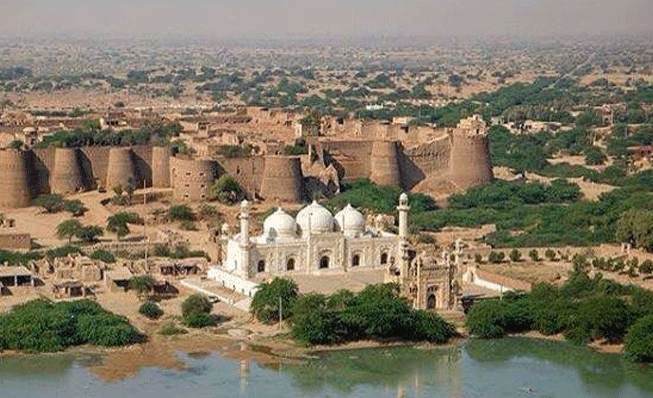
The development of New Economic City (NEC) is envisioned to reduce urbanization pressure on the existing cities and to reimagine the role of cities as engines of growth in real terms. The Urban Unit has been tasked to lead this city development venture in the capacity of a Project Management Unit (PMU).Pre-feasibility studies have already been concluded by engaging international consultants, and have essentially validated 4 sites out of 12 - Lillah, Sukheki, Pindi Bhattian and Gujrat - as the ‘most suitable’ sites for the development of a NEC. The project is in the next stage for a detailed assessment and calibration study to select the optimal site, followed by a Technical Feasibility Study, Detailed Master Planning and Detailed Engineering Design of catalytic projects on the selected site.
Client: Housing, Urban Development & Public Health Engineering Department, Government of the Punjab
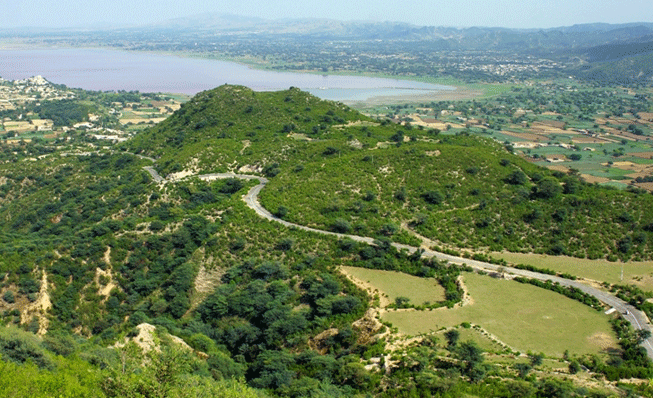
The Soon Valley, located in northwest Khushab District near the Salt Range and Potohar Plateau, spans 300 square miles and is renowned for its scenic beauty, including lakes, waterfalls, forests, and ancient sites. It offers a sanctuary for migratory birds and supports eco-tourism potential. An initiative led by Mian Hamza Shahbaz Sharif focuses on preserving and developing the valley through a sustainable ecotourism plan. This plan aims to enhance socio-economic benefits, maintain cultural integrity, and conserve biodiversity and life-support systems.
The services provided within the assignment was to promote Soon Valley as a world leading sustainable community and eco-tourism destination focusing on how positive social, cultural and economic relationships with relevant stakeholders can turn Soon Valley into engaged and committed hosts. Further, the project offered following benefits:
Enhancement and delivery of tourism products, services, activities and events in low traffic months
Encouragement of private sector investment in tourism projects and services to achieve optimum benefits for the tourism industry and residents
Soon Valley’s tourism businesses to become employers of choice for residents seeking long-term careers, offering exceptional opportunities for growth in the competitive tourism industry
Soon Valley’s secondary and post-secondary institutions to offer world-renowned tourism education to attract and develop future tourism employees and leaders
Upgrade the existing settlements in Soon Valley by improving infrastructure and;
Provision of better facilities to invite more tourists towards indigenous development
Client: Tourism Development Corporation of Punjab, Govt. of the Punjab
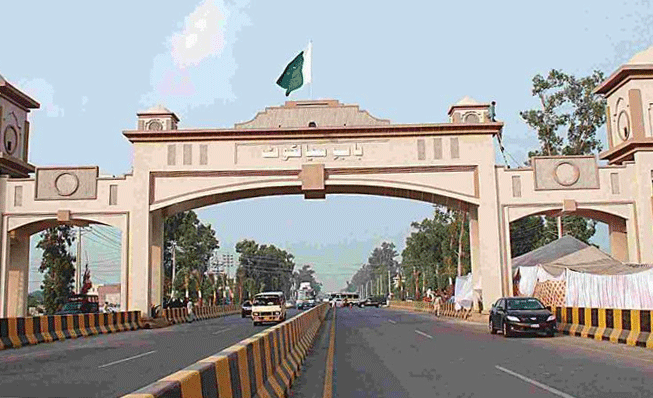
The Local Government & Community Development Department, Government of Punjab is going to implement the Punjab Intermediate Cities Improvement Investment Program (PICIIP) with the assistance of Asian Development Bank in Sahiwal and Sialkot. It will focus on the intermediate cities and its outcome will be improved quality of urban services available to the residents of selected cities in Punjab. The key outputs will be; (i) introduction of integrated urban planning; (ii) improved institutional framework for urban services at the city level; (iii) strengthened business processes of urban utilities; and (iv) improved urban infrastructure.
ADB hired an International Consultancy firm to work closely with Urban Unit in order to formulate integrated city development strategies for the two cities of Sialkot and Sahiwal, located in Pakistan’s Punjab. Urban Unit’s project guided the International Firm in the whole process and also provided intellectual input throughout the assignment. It will include detailed evaluation of themed development options for each city including for example, urbanization and urban form, city and regional economy, priority business sectors, population and housing, infrastructure and transportation, green infrastructure and green space, community and social inclusion, and environmental protection.
Utilizing the highly participatory approach outlined above, a 05-stage methodology for preparation of an ICDS, including cross-cutting participation will develop a consistent approach across all cities enabling a sharing of resources and experiences. Consistency will also allow for constructive comparative monitoring and evaluation of results.
Client: Planning and Development Department, Govt. of the Punjab

The Urban Unit started developing Bahawalpur City Master Plan 2047 in collaboration with the District Government Bahawalpur, starting with the visioning exercise "Imagine Bahawalpur 2047." This initiative involved extensive stakeholder engagement, consultations, and situational analysis to incorporate citizen aspirations for a sustainable and prosperous future. The plan outlines a comprehensive development strategy, sectoral action plans, and a monitoring framework for integrated growth. The methodology includes vision-setting, data collection, stakeholder feedback, situational analysis, mapping, and preparation of implementation and master plans.
Following key focus areas are identified and considered in planning of Bahawalpur city. Detailed studies of focus areas have been carried out to meet the future needs of the city by 2047.
Strategic focus areas are Land Use Planning, Transportation Planning & Development, Housing Development, Community Development, Economic Development, Municipal Services and Service Delivery, Municipal Finance, Environmental Planning, Institutional Development and Tourism & Heritage Development.
Tourism & Heritage Development is taken in account in the development of Bahawalpur City Master Plan. The master plan provides direction and focus for growth and development of the local tourism industry, as well as tourism benefits for the community, local business and government. Tourism and Heritage development will become a core part of urban life and culture in Bahawalpur in 2047 to create, enhance and deliver tourism products and services that market Bahawalpur as a must visit destination. The idea is to reflect its unique culture and diversity, and to protect and conserve heritage buildings and promote the image of Bahawalpur as a rich historical city.
Key actions taken included attract hotel chains, attract investment in hospitality sector, develop a crafts village and strengthen local artisans, identify and develop a historic core of the city i.e. Palaces, Museum, Parks and Fort, while regulating park & public space maintenance, installation and up gradation of urban furniture, promotion of community events and festivals, generation of revenue by charging parking fees to tourists visiting palaces or other tourism spots and development of programs to attract residents and visitors.
Client: TMA Bahawalpur, Govt. of the Punjab
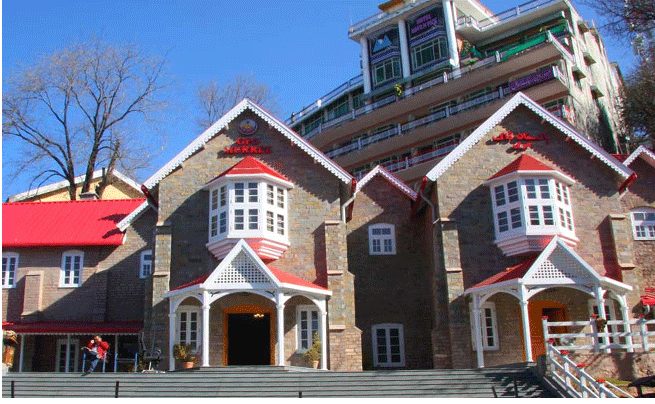
The project focuses on the conservation, restoration, and rehabilitation of the GPO building. In-depth research was done on the original construction, materials, plans and subsequent interventions and additions to form a reliable basis for planning the GPO’s long-term sustainable conservation.
The project is completed through following implementation process including:
Topographical survey of the site
Photographic documentation and detail measured drawings of the existing building
Documentation both prior to and post- removal of plaster
Historical research of the building keeping in view environmental and social strengths
Identifying original remnants of the building and interventions undertaken since its construction
Preparing a draft proposal for conservation and restoration of the historic buildings including visitor destination management planning and funding investments
Preparing tender documents for restoration works
Awarding work to the contractor as per government rules
Design for adaptive reuse of the building
Setting up of the Pakistan Post office
Client: Pakistan Post Office Department
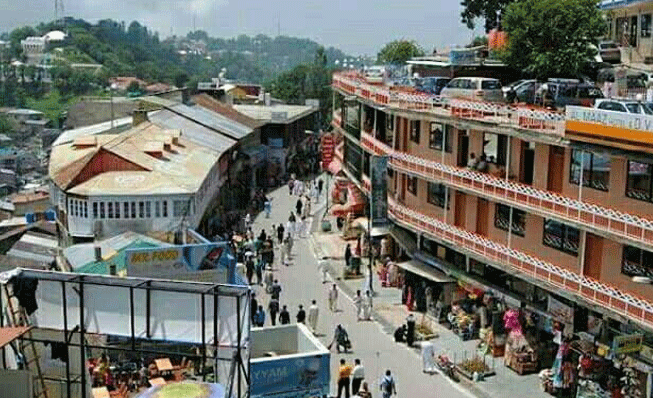
The project preserved and highlighted the historical character of Murree Mall and safeguarded it against decay in future. In addition, restoration upgraded the existing drainage, sewerage road and electrification infrastructure of Mall Road to improve aesthetics of the area, enabled the easier passage of tourists and improved the capacity of space to withstand the elements and heavy commercial use. The project, therefore, performed destination, visitor, and investment planning and management of the area.
Some buildings on Mall Road have stood since their original construction and were built in keeping with the ethos of the space in its heyday; their historic character merits special attention. Following activities on Mall Road were identified as historic structures for restoration:
Façade Restoration of Historic Building
Façade Modification of Modern Buildings
Infrastructure Drainage
Road Surface
Electronic and Telephone Wiring
Removing traffic barriers
Green Space and Greenery
Solid Waste Management
Shops’ Front
Benches, Boundary Walls and Street Signage and Artist Impressions
The historic nature of the Murree Mall merits preservation beyond just restoration work. Without an appropriate framework to preserve the physical renewal of the space and market analysis of the visitors, all efforts would have proven futile in the long term. The project thus included the establishment of Mall as a Special Notified Zone that is governed by a special regulatory mechanism that aims to promote the history of the space and prevent it from returning to the state of disrepair that it currently is in.
Client: District Government Rawalpindi, LG&CDD
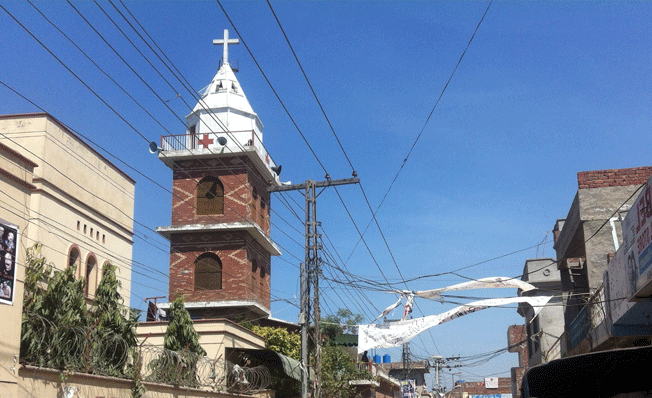
Youhanabad is a residential locality known to be one of the largest Christian majority settlements in Lahore. A feasibility study has been conducted to assess the need for urban upgradation in the settlement. This consists of a site and situational analysis, needs assessment, identification of a model block area and proposed upgrades and improvements deemed feasible and necessary in the local setting.
A site and situational analysis of the settlement has been conducted, as part of the rapid assessment study, to assess housing needs of local residents. This analysis provides a thorough assessment of the site and important information regarding the residents’ socio-economic details and living conditions. It aims to inform policy decisions and interventions aimed to improve living conditions of this minority population.
The staff provided comprehensive services for the settlement assessment by employing multiple data collection methods. First, the settlement was mapped at the parcel level, dividing it into 74 blocks, with each block's streets and land parcels digitized. A detailed land-use survey was conducted to analyze urban fabric, building types, land usage, vacant plots, solid waste, and water accumulation. A socio-economic survey was also carried out to understand residents' livelihoods, access to utilities, and their improvement needs, ensuring a participatory approach. A total of 70 interviews, with equal gender representation, were conducted in randomly selected blocks, complemented by informal discussions and participant observation for a holistic analysis.
Client: Government of the Punjab Human Rights & Minority Affairs Department
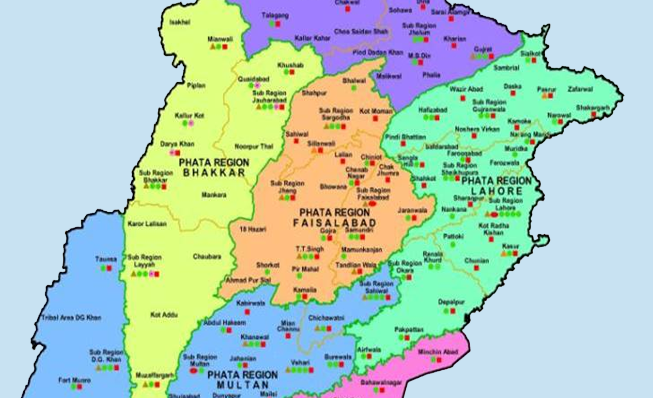
Developing a long-term strategic vision for regional economic goals in Punjab is essential for unlocking future opportunities. The government’s role is to create an enabling environment and infrastructure to support cluster development and growth, enhancing trade and investment. Collaboration among stakeholders is crucial for regional development, ensuring resource-sharing and risk management. The plans use spatial data and ground assessments to rapidly create actionable strategies that address current investment gaps, promote balanced development, and align local-level planning with provincial objectives. These regional plans identify sector-specific projects based on competitive advantages, guiding public investments and informing ADP, PSDP, and PPP portfolios.
The Regional Planning in Punjab had two components:
Projects being developed for allocation in the ADP/ODP and potential bids;
Client: Planning and Development Department, Govt. of Punjab, The World Bank
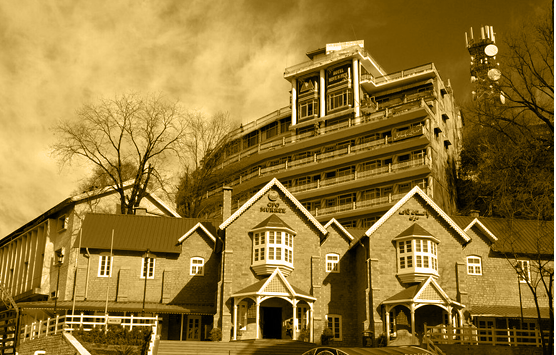
The Urban Unit has embarked on restoration and upgrading of the Murree Mall road as a part of the Prime Minister's program for the beautification of Murree and provision of facilities to tourists. The project seeks to preserve and highlight the historical character of the Murree Mall Road and safeguard it against decay in the future. In addition, the restoration will upgrade the existing drainage, sewerage road and electrification infrastructure of Mall Road to improve the aesthetics of the area, enable the easier passage to the tourists and improve the capacity of the space to withstand the elements and heavy commercial use.
The renovation and restoration process is currently underway keeping following objectives in consideration:
Restoration and preservation of the Mall's historic buildings facades to reflect the aesthetics of old Murree
Transformation of facades of the modern buildings to echo the same historical aesthetics
Development of high quality, user friendly pedestrian, public spaces and facilities
Development and refinement of green spaces
Establishment of area as a Special Notified Zone under the Land Use Rules to safeguard the Mall road in the future
Client: Local Government and Community Development
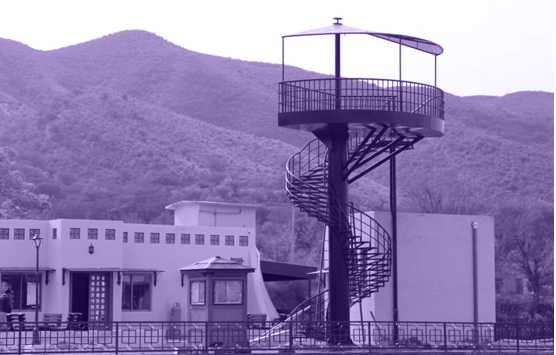
The Urban Unit, in
collaboration with the Tourism Development Corporation of Punjab (TDCP), is
working on a comprehensive and sustainable eco-tourism programme for Soon
Valley, which includes the development of facilities at three different sites
in the area: Kanhatti Gardens, Khabbeki Lake and Uchali Lake, and will also
contribute towards fostering the development of ecotourism activities in other
regions of Pakistan.
The construction work is near completion at
Khabbeki Lake and Kanhatti Garden. The Garden has also been outfitted with a
gravity-fed water system that makes use of the natural gradient of the
surrounding hills to provide a continuous source of clean water to all parts of
the site.
Client: Tourism Development Corporation of Punjab (TDCP)
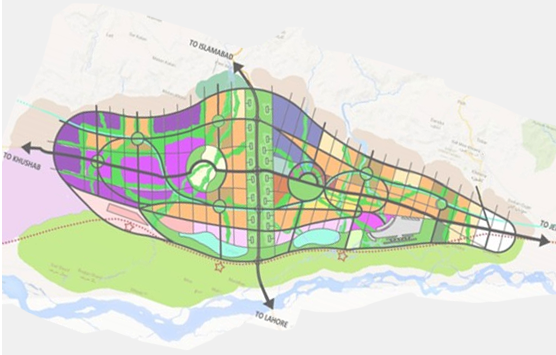
The development of New Economic City (NEC) is envisioned to reduce
urbanization pressure on the existing cities and to reimagine the role of
cities as engines of growth in real terms. The Urban Unit has been tasked to
lead this city development venture in the capacity of a Project Management
Unit (PMU).
Pre-feasibility studies have already been concluded by engaging
international consultants, and have essentially validated 4 sites out of 12 -
Lillah, Sukheki, Pindi Bhattian and Gujrat - as the ‘most suitable’
sites for the development of a NEC. The project is in the next stage for a
detailed assessment and calibration study to select the optimal site, followed
by a Technical Feasibility Study, Detailed Master Planning and Detailed
Engineering Design of catalytic projects on the selected site.
Client: HUD & PHE Department, P&D Department and World Bank
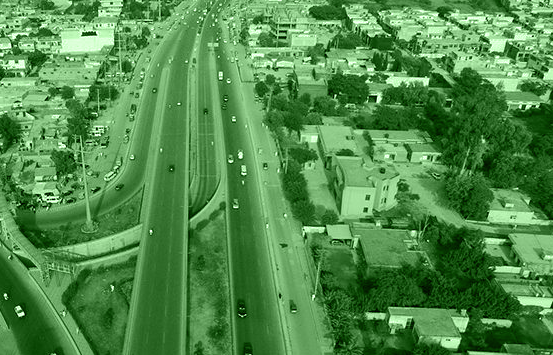
The
Punjab Intermediate Cities Improvement Investment Program, a $ 500 m Sector
Lending Loan Facility ($ 500 Million ADB Load
and $ 100 Million GoPB component) is funded by the Asian Development Bank (ADB)
to be implemented over a period of 6 years.
PICIIP aims to improve the efficiency and financial sustainability of five
intermediate cities (Sialkot, Sahiwal, Rahim Yar Khan, Bahawalpur and Sargodha)
and effectiveness of urban services including water supply, waste water project, treatment, solid waste management, transport
infrastructure and up gradation of Punjab Local Government Academy Lalamusa, also
envisioning to materialize the objectives of Punjab Growth Strategy, 2018.
The Urban Unit is the Technical Advisor on the Program design, planning,
environmental compliance, urban planning and Capacity Building Components.
Overall, the PICIIP is being implemented through a Project Steering Committee
(PSC) headed by Chairman, Planning and Development (P&D) Board to oversee
and monitor the implementation of the project. The Program is to be executed by
the LG&CD Department through a Provincial Program Management Unit (PMU)
& City Implementation Units (CIUs) at the concerned MCs.
Client: Local Government and Community Development Department

The flagship project of Urban Unit “Punjab Cities Governance Improvement
Project (PCGIP)” is a five year long World Bank funded initiative being
implemented by the Government of Punjab. The project focuses on strengthening
the institutional capacity and service delivery of local governments in five
key cities; Faisalabad, Gujranwala, Lahore, Multan and Rawalpindi. PCGIP
comprises of 3 distinct components, with Component 1 focusing on two areas of
urban governance that are aligned with seven Disbursement Link Indicators
(DLIs) that address different aspects of the project’s core pillars. DLIs 1-4
address resource planning and management while DLIs 5-7 address transparency
and voice in the preparation, monitoring and evaluation of plans and programs
in five target City District Governments (CDGs) and Water and Sanitation
Agencies (WASAs).
Client: World Bank
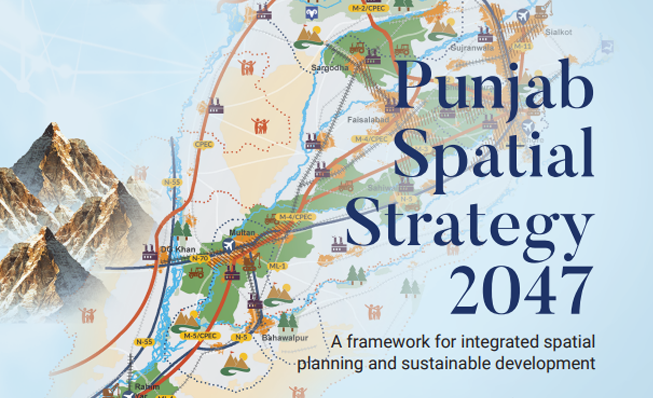
The Punjab Jobs & Competitiveness Program, developed by the World Bank, includes the Punjab Spatial Strategy (PSS) to enhance economic growth by prioritizing and coordinating public investments in growth corridors, nodes, and infrastructure. Executed by the Urban Unit, PSS focuses on spatial planning to guide long-term development, address socio-economic disparities, and align investments with locational advantages. Its objectives include optimizing industrial estates, transport connectivity, and municipal infrastructure, while providing a spatial economic framework to inform provincial and local planning.
The Strategy shall set out the long-term spatial vision and the strategic policies and proposals required for delivering that vision. The Urban Unit provided following services acting as execution agency for the Punjab Spatial Strategy including primary data collection and enumeration, secondary data collection (Economic & GIS), analysis, research and knowledge products, policy and institutional reform, project management and execution, implementation planning, capacity building and enhancement and stakeholder engagement.
Key areas of the intervention were; spatial planning, urban planning, economic development, industrial development, agricultural development, social progress, environmental management, transport planning, regional planning, policy reform, investment planning, and others.
Client: Planning and Development Department, Govt. of Punjab, The World Bank